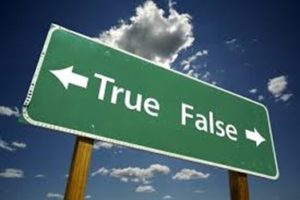Inquiring Deeply About Belief

What We Believe, and Why
In this age of disinformation, it is vital that we see clearly what inclines us to believe one thing or another. Belief necessarily goes to issue of Truth and what we take to be factually correct, so it is important to be aware of how we go about evaluating information, and what sources of information we regard as trustworthy.
Beliefs are important in part because they are a foundation upon which our life experience is constructed. Investigating our beliefs can show us a great deal about how we are complicit in the unfolding of our experience. For example, the basic inquiry what story am I believing now? calls our attention to the narrative structure of beliefs that are framing our ongoing experience, sometimes outside of our awareness. The connection between what we believe and what subsequently happens to us is acknowledged in the idea of self-fulfilling prophecy: expectations can lead to their own confirmation.
Beyond exploring what we believe, it is also illuminating to investigate how we engage with beliefs. By investigating belief-driven actions and states of mind, we can begin to see that belief is a dynamic process. Beliefs help us organize the endless stream of information that continually pours into us, and then we support our views with post-hoc rationalizations and justifications. Information which does not fit with our belief system causes feelings of unease and tension, leading us to “explain things away” or to reject outright that which is cognitively dissonant. All of this is part of the human quest for internal coherence.
Our beliefs define for us what sort of a universe we live in; what makes sense, or doesn’t; where meaning is to be found. They also express who we are in the world; what sort of person we are and what we value. Beliefs become woven into the fabric of our personalities through our identifications with parents, siblings, and others who are important to us. We may take on the beliefs of those we admire; or, we may define our beliefs in opposition as a way of asserting difference. We are motivated to endorse views which are normative in our social groups and culture. In these and many others ways, our beliefs reflect and express our deeply-held feelings about our lives and about our significant others.
Beliefs are an important part of the defensive façade we use to protect ourselves against unwanted information, unbearable states of mind, or unwise impulses towards action. They tell us what we can expect, and then help us to protect ourselves against perceived threats that come both from the outside world and from within. Many of these principles have been salient in the operation of beliefs around COVID and vaccination.
The idea of “delusion” is a related and important concept, referring to the possibility that we may hold idiosyncratic beliefs or impressions that are not ‘true’ in the sense that they cannot be confirmed empirically or through rational argument. But not all delusional beliefs are created equal. There are emotional energies and attachments that connect us to what we believe. We are mildly deluded when we hold as true views which are in fact mistaken, misguided, or based on faulty information. While sometimes we may be open to changing our minds, we can also get strongly invested in our need to prove that what we believe is true or right, sometimes even in the face of validated facts to the contrary (such as scientific data, videotape, or other verifiable records. ) Moreover, delusional beliefs may garner considerable consensual support from others, even to the extent of gaining a wide following of fanatic believers. Think for instance of Q Anon proponents or ‘flat earthers’. Finally, delusions may be deemed ‘psychotic’ if they are believed to reflect abnormalities in the affected person’s thinking process. In neutral language, we can define delusions simply as strongly held subjective truths which cannot be verified empirically.
Delusion aside, there is a difference between belief and verifiable truth. Believing something doesn’t make it so.
One of the defining benefits of psychotherapy is the opportunity it affords us to explore our beliefs. Unfortunately, a lot of our beliefs may not be known to us consciously. Some we have simply never examined before; some have been relegated to the unconscious ‘shadow realm’. Deluded views of various kinds are a not infrequent presentation in people seeking psychotherapy. Although in therapy I may take issue with beliefs that strike me as dysfunctional or deluded, before challenging someone’s ideas I try to understand empathically how and why they believe as they do. As I hope I have made clear, beliefs serve a variety of psychological functions. Be that as it may, psychotherapeutic conversation can help illuminate what we believe and why. Indeed, to my mind this is one of basic goals in the entire psychotherapeutic endeavor.
A lot of what people believe is received wisdom that comes from family, religion, or culture, but it is helpful to bear in mind the Buddha’s doctrine of ehipassako: rather than believing what you hear or what is told to you, it is more skillful to explore for yourself what is true in your own experience. We can begin the inquiry by noticing simple experiences: For example, how do you react when you hear views that differ from your own? Do you tend to defer to the opinions of others, or to defend your own point of view? Are you “opinionated”? Notice the tone of voice you use when you express your opinions. Do you take satisfaction in being right? What judgments do you attach to people who believe one thing or another?
I have learned a great deal about belief in the process of working with people in psychotherapy who hold a wide variety of spiritual and metaphysical views. I regularly hear about experiences in non-ordinary realms we might term magical, mystical, paranormal, supernatural, transcendent, or esoteric — for example, divination, healing at a distance; past life experiences; astral travel; and trance channeling. It became obvious to me long ago that there was no useful purpose served by my believing in anything that I didn’t experience personally (unless verifiably true) , so I cultivated a capacity to suspend both belief and disbelief in clinical work and thread a fine line equidistant from both. I have also learned that views can always be understood in relation to the person and the world in which they live.
In important ways, we are what we believe. Our minds don’t merely reduce what they encounter in the external world; they also participate in the shaping of phenomena. What is most helpful is to recognize that belief is responsive to our state of mind. In place of a static view of belief, and instead of frozen dualities such as true vs. false, or subjective vs. objective, it is more helpful to look for both/and. As the psychoanalyst George Atwood articulates beautifully[i], there is a core of subjective truth within every person’s beliefs, no matter how bizarre these ideas may seem.
[i]Atwood, G. & Klugman, D. (Eds.) Deep Thoughts: a forum for ideas expressed in a single sentence or less. http://www.georgeatwood.com/deep-thoughts.html

